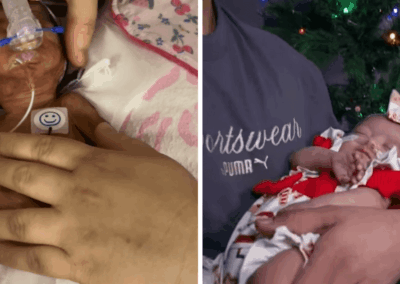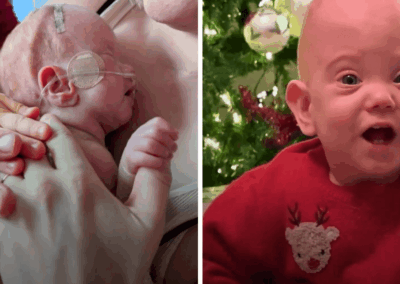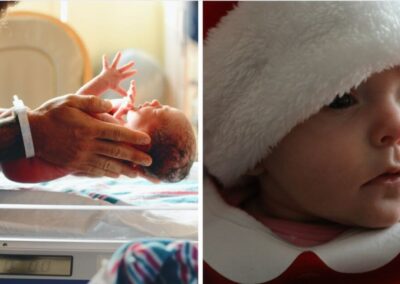Dancing on Ice judge and Strictly Come Dancing winner, Oti Mabuse, has spoken out about her experience of giving birth to a premature baby and the care she received from the NHS.
Oti’s daughter arrived two months early and required hospital care for six weeks after birth.
She described the experience as “traumatic” as she was diagnosed with sepsis and her daughter was put in an incubator with jaundice. The baby spent six weeks in the neonatal intensive care unit at University College London Hospital.
Shock at post-birth diagnosis
She said “It was this moment of, I’ve been through this amazing birth, which was incredible. It was serene, it was happy and it was everything that I wanted. The last bit was not what I had wanted”.
“You see your child for two minutes and then they get taken away by a group of ten midwives and doctors. That’s when things start to change and start to hit you”.
“I think we didn’t hold her for about a week because she was still in an incubator with the wires, and with jaundice so she was under blue light. And she had infections because it turned out that I had sepsis”.
Praise for the NHS staff
Speaking of the treatment her daughter received, Oti said “I always felt she was in safe hands. It was about treating her the best way we could. She had to learn to breathe on her own properly, eat on her own, and that came with time”.
She praised the staff who worked with her, saying “The neonatal unit is a huge world that I didn’t know a lot about. They do amazing work. A lot of the babies there have tiny veins and weigh just 500 grams”.
“It’s incredible seeing the nurses and midwives in action, they attend to your baby when you’re not there”, she added.
At two months premature, Oti’s baby girl was born after the current abortion limit of 24 weeks. However, in England and Wales, there were a total of 261 babies born alive at 22 and 23 weeks, before the abortion limit, who survived to discharge from hospital in 2020 and 2021.
This means in the same hospital, on the same day, two babies at the same gestational age (22 or 23 weeks gestation) could have very different fates – one could have his or her life deliberately ended by abortion, and the other could be born prematurely and have a dedicated medical team provide the best care they can to try to save his or her life.
This is not mere speculation as a number of hospitals in England provide specialist care for extremely premature babies, usually those born before 27 weeks gestation, and also perform late-term abortions, between 20 and 23 weeks. According to statistics released by the Department of Health and Social Care, between 2018 and 2021 (2018, 2019, 2020, 2021), Birmingham Women’s Hospital performed 143 abortions where the baby was between 20 and 23 weeks gestation in 2021. At the same time, their neonatal intensive care unit “provides intensive care to premature babies born as early as 23 weeks”. This means in this hospital in Birmingham, there could be doctors at one end of the hospital fighting to a keep baby born at 23 weeks gestation alive, and, at the other end of the hospital, there could be other doctors ending the life of a baby at 23 weeks gestation through an abortion.
Similarly, Liverpool Women’s Hospital performed 108 abortions where the baby was between 20 and 23 weeks gestation between 2018 and 2021. The same hospital also provides neonatal intensive care for babies from as young as 22 weeks gestation “and as small as 400g”.
Spokesperson for Right To Life UK, Catherine Robinson, said “When celebrities like Oti Mabuse speak out about their experiences of giving birth to premature babies, it brings to public attention the humanity of babies in the womb at around the same age. Hopefully, stories like this will help voters and legislators to take action to move away from our current law’s attitude towards younger unborn children”.












